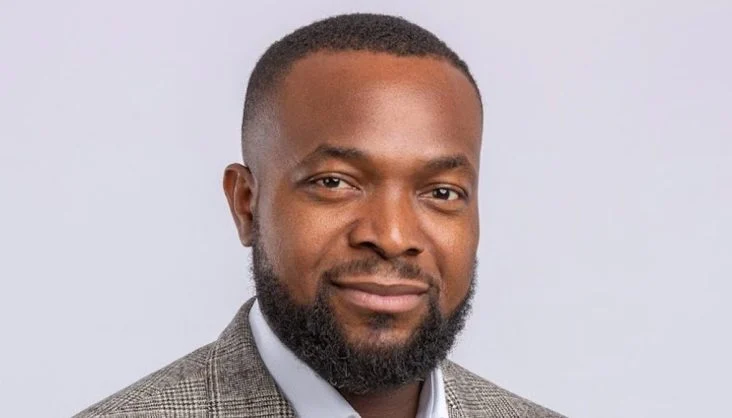News
Nigerian govt, ITU advocate for global collaboration to address submarine cable disruptions

The Federal Government of Nigeria, in partnership with the International Telecommunication Union (ITU), has called for global cooperation to tackle the rising disruptions and damages to submarine cables, warning that these incidents threaten the stability and growth of the global digital economy.
Speaking at the International Submarine Cable Resilience Summit, held in Abuja on Wednesday, the Minister of Communications, Innovation, and Digital Economy, Bosun Tijani, emphasized the need for a concerted global effort to safeguard submarine cables, describing their resilience as crucial for multiple sectors.
Tijani stated, “Under the leadership of President Bola Tinubu, Nigeria is committed to strengthening its digital infrastructure and advancing policies that support connectivity, innovation, and economic growth. We are taking decisive steps as a nation to recognise and protect the government’s infrastructure as critical national infrastructure, aligning with our broader efforts to enhance digital resilience across all sectors.”
He further noted, “As a government, we are also deeply invested in leveraging digital property infrastructure, promoting global access, and expanding broadband penetration, ensuring that connectivity remains a catalyst for economic transformation and revolution. The outcomes of this summit will not only influence policy and investment decisions but also serve as the foundation for global cooperation and long-term resilience.”
Doreen Bogdan-Martin, the Secretary-General of ITU, also addressed the gathering, stressing the urgency of safeguarding submarine cable networks, which underpin 95% of global digital connectivity. She highlighted the exponential growth of the digital economy, which now constitutes a significant portion of the global Gross Domestic Product (GDP), and is expected to be worth $16.5 trillion by 2028.
Read also: Jude Okoye remanded in prison custody as EFCC charges him with ₦1.3bn fraud
“Since the 2005 World Summit on the Information Society, the number of internet users has grown from one billion to 5.5 billion. Today, the global digital economy is growing faster than global GDP and is projected to reach 16.5 trillion U.S. dollars by 2028. Over the next decade, more than two-thirds of new value creation could come from digitally-enabled companies,” she said.
Bogdan-Martin also raised concerns about the frequency of submarine cable disruptions, estimating that around 200 incidents occur annually. These disruptions, she explained, complicate repairs across continents and affect global economies that rely on these cables for finance, trade, education, health, and governance.
She praised Nigeria for hosting the summit and urged ITU’s advisory board, academia, and industry stakeholders to develop strategies to enhance the resilience of undersea cable infrastructure. “This global undersea network is emblematic of the innovation and the investment required to connect the world meaningfully,” she said.
Sandra Maximiano, Co-Chair of the ITU Advisory Board, echoed similar concerns, emphasizing the critical role submarine cables play in the global economy. She pointed to last year’s cable cuts in West Africa, including in Nigeria, Côte d’Ivoire, and Senegal, as a reminder of the vulnerability of submarine cables.
“It is no coincidence that we are meeting here in Abuja today, given that several cable cuts occurred in March last year affecting multiple countries in West Africa, including Nigeria, Côte d’Ivoire, and Senegal. This incident highlighted the critical importance of subsea cable businesses in this region, with some estimates indicating that over 70 million customers were impacted,” Maximiano stated.
Maximiano also noted the uneven distribution of submarine cables across the region, stating, “While Nigeria is served by several submarine cable systems, many of which also land in my home country, Portugal, other West African countries are served by only a single submarine cable.”
The two-day summit attracted over 300 delegates from ITU’s 194 member countries, icluding government representatives, telecom operators, policymakers, and technology experts, all gathered to discuss strategies for strengthening global undersea cable networks.
Notable figures at the event included the Executive Vice-Chairman of the Nigerian Communications Commission, Dr. Aminu Maida; the Permanent Secretary of the Ministry of Communications, Innovation and Digital Economy, Faruk Yabo; the Director-General of the National Information Technology Development Agency, Malam Kashifu Inuwa; the National Commissioner of the Nigeria Data Protection Commission, Dr. Vincent Olatunji; and the Managing Director of NigComSat, Mrs. Jane Egerton-Idehen.
Join the conversation
Support Ripples Nigeria, hold up solutions journalism
Balanced, fearless journalism driven by data comes at huge financial costs.
As a media platform, we hold leadership accountable and will not trade the right to press freedom and free speech for a piece of cake.
If you like what we do, and are ready to uphold solutions journalism, kindly donate to the Ripples Nigeria cause.
Your support would help to ensure that citizens and institutions continue to have free access to credible and reliable information for societal development.
















